Belonging New strategic plan provides roadmap for enhancing diversity, equity, inclusion, and belonging at Salk
The Salk Institute is known for making fundamental discoveries in the fields of cancer, neuroscience, immunobiology, aging, plant biology, computational biology, and more.
These accomplishments depend on people—people drawing on their training, life experiences, and perspectives to ask creative questions, design and execute experiments, analyze data, and share the results.
Advancing diversity, equity, and inclusion (DEI) in the workplace is not only the right thing to do, studies show that diverse teams outperform homogenous ones in terms of problem-solving ability, complex decision-making, and introducing novel ideas—all critical for high-impact science. At Salk, improving DEI is a commitment to both scientific discovery and humanity.
To further diversify the Salk community and embed DEI into decision-making at all levels, the Institute’s DEI team recently published the Strategic Plan for Further Diversifying Salk. The plan is based on listening sessions, discussions, individual and committee recommendations, a campus climate survey, working group feedback following the survey report, and comments on drafts of the plan.
The plan focuses on four strategic priorities developed by Luzilda (Lucy) Arciniega, director of DEI at Salk.
The strategic plan is intended to empower grassroots work and initiatives led by individuals or groups across campus, with the DEI team acting as a resource, setting benchmarks, and reporting on progress.
“This is an important moment for the Institute,” says Sue Bacino, Salk’s vice president of People & Culture. “It’s an opportunity for the entire Salk community to help move this plan forward and build upon it through their individual efforts and collective participation.”
“These strategic priorities serve as a roadmap for how to advance diversity, equity, inclusion, and belonging across the Institute, and importantly, they enable us to measure the efficacy and impact of our efforts.”
–Lucy Arciniega, Director of dei at salk
The four strategic priorities are:
- Achieving Education & Understanding of DEI
Efforts that advance knowledge of DEI help foster positive working environments. Salk is committed to building individual and collective understandings of DEI in a culture that is welcoming and productive. - Increasing Access & Representation in STEM
Salk is part of a broader national effort to diversify the STEM workforce as a commitment to scientific discovery and humanity. Equally, Salk aims to continue to increase representation with talented employees who support the STEM enterprise. - Expanding & Strengthening the Salk Community
Salk maintains a unique and innovative culture. Through attention to diversity, equity, and inclusion, all community members can continue to strengthen internal relationships and expand external relationships through philanthropy, education, community outreach, and communication. - Ensuring Recognition through Accountability
To be a leader in DEI, it is critical to measure and hone efforts to ensure that the Institute is achieving its DEI goals and communicating its achievements and progress. We also recognize individuals and groups for the hard work they are doing to change culture and achieve DEI goals.
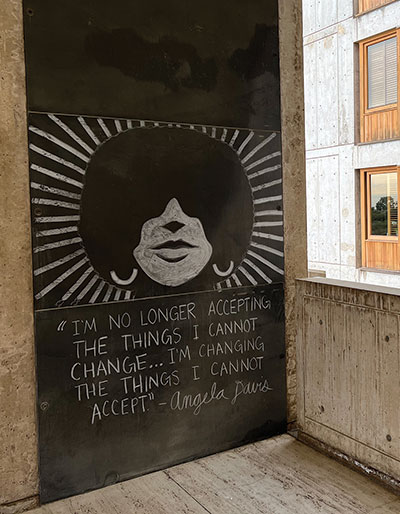
Support a legacy where cures begin.
Featured Stories
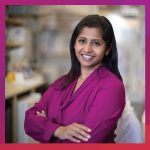 Deepshika Ramanan–From iguana poop to breastmilkRamanan, a new assistant professor and microbiologist by training, made a chance discovery about animal gut bacteria that led to her fascination with breastmilk immunity.
Deepshika Ramanan–From iguana poop to breastmilkRamanan, a new assistant professor and microbiologist by training, made a chance discovery about animal gut bacteria that led to her fascination with breastmilk immunity.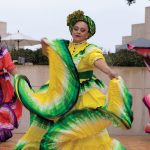 New strategic plan provides roadmap for enhancing diversity, equity, inclusion, and belonging at SalkGroundbreaking scientific discoveries require talented people behind the scenes, and the more diverse those people are, the more groundbreaking their discoveries. At Salk, improving diversity, equity, and inclusion is a commitment to both scientific discovery and humanity.
New strategic plan provides roadmap for enhancing diversity, equity, inclusion, and belonging at SalkGroundbreaking scientific discoveries require talented people behind the scenes, and the more diverse those people are, the more groundbreaking their discoveries. At Salk, improving diversity, equity, and inclusion is a commitment to both scientific discovery and humanity.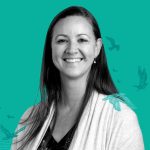 Trinka Adamson–Supporting Salk science through animal careAdamson, senior director of Salk’s Animal Resources Department, works to provide the highest quality veterinary medical care, husbandry, enrichment, and professional technical support to enable our scientists to conduct their animal research and make their bold discoveries.
Trinka Adamson–Supporting Salk science through animal careAdamson, senior director of Salk’s Animal Resources Department, works to provide the highest quality veterinary medical care, husbandry, enrichment, and professional technical support to enable our scientists to conduct their animal research and make their bold discoveries.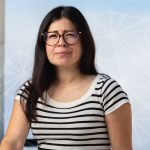 Melissa Hernandez–Horses, hot sauce, and human brain researchHernandez, a postdoctoral researcher in the lab of Professor Rusty Gage, journeyed up and down the west coast and turned from scientist to hot sauce entrepreneur and back before finally settling at Salk to study neuroscience.
Melissa Hernandez–Horses, hot sauce, and human brain researchHernandez, a postdoctoral researcher in the lab of Professor Rusty Gage, journeyed up and down the west coast and turned from scientist to hot sauce entrepreneur and back before finally settling at Salk to study neuroscience.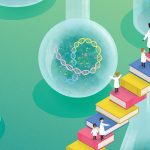 To inspire and educate: Salk’s Education Outreach is on a missionMotivated by Jonas Salk’s admonition to “be good ancestors,” Education Outreach strives to inspire the next generation of scientists. By running programs like the Mobile Science Lab or High School Science Day among others, Education Outreach encourages scientific literacy, enthusiasm in science as a career, and awareness of the value of basic research.
To inspire and educate: Salk’s Education Outreach is on a missionMotivated by Jonas Salk’s admonition to “be good ancestors,” Education Outreach strives to inspire the next generation of scientists. By running programs like the Mobile Science Lab or High School Science Day among others, Education Outreach encourages scientific literacy, enthusiasm in science as a career, and awareness of the value of basic research.





















































